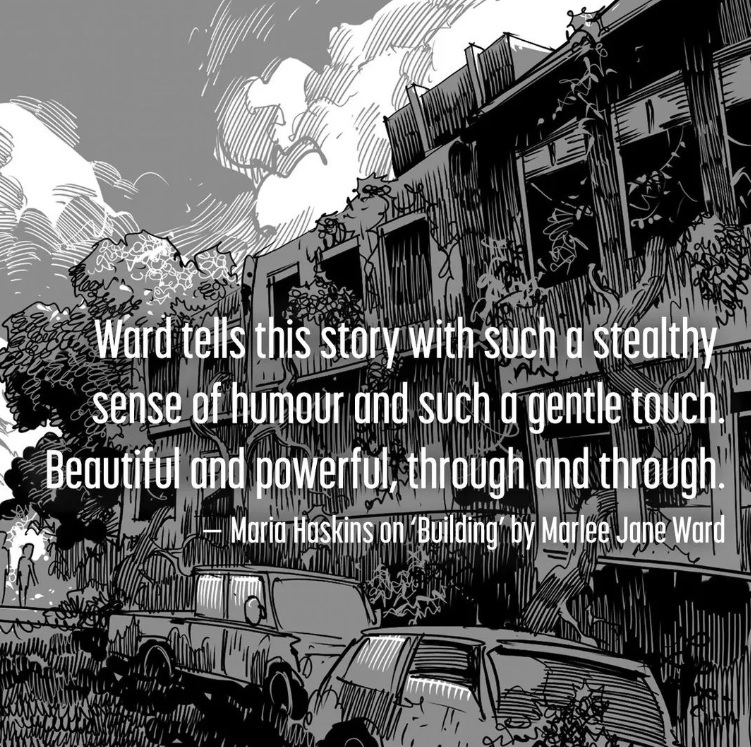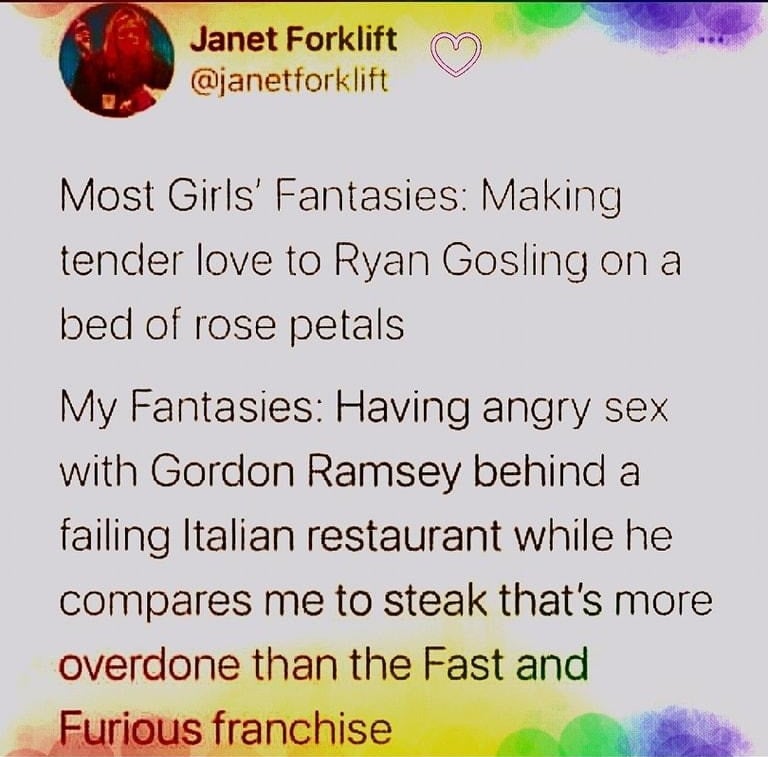nothing here but the language of the sacred - issue 238 - 12th November, 2023
nothing here but the language of the sacred
issue 238 - 12th November, 2023
CJW: Welcome to another issue of nothing here. I'm a few hours late, so let's keep this brief. Andrew Dana Hudson joins us again for this issue - he and I have a new short story out in Analog magazine (see The Self-Promotion below), so it seemed as good a time as any to have him join us in these pages again.
As ever, if you want to support us, you’ve got a couple of options:
Both give you access to the full bonus archive, as well as new bonuses as they are posted. Another thing you can do to help spread the word is forward this email to someone you think might enjoy it.
The Team
Daniel Harvey (DCH) - Designer, writer, provocateur. Pro-guillotine tech critic. @dancharvey
Marlee Jane Ward (MJW) - is also Mia Walsch. Writer & visual artist. Middle-aged greying goth.
Corey J. White (CJW) - Author, sin-eater, bad milk blood robot.
Lidia Zuin (LZ) - Journalist, MA in semiotics, and PhD in Arts. Sci-fi writer, futurology researcher and essayist. @lidiazuin
Andrew Dana Hudson (Guest, ADH) - Author, researcher, futurist. Writing about solarpunks and cyberproles.
Climate Change & The Environment
CJW: We've "lost control" of West Antarctic melting - Ellen Phiddian at Cosmos
The melting of the West Antarctic Ice Sheet may now be “locked in,” according to a new analysis. Previous research has estimated that complete collapse of the sheet will cause about 5m of global sea level rise over several centuries. Now, a study published in Nature Climate Change has found that ocean warming triggering this collapse is inevitable, even if the world meets the most ambitious Paris Agreement target of 1.5°C of warming.
Speaking of 1.5°C…
Carbon budget for 1.5C will run out this decade says study - Jacinta Bowler at Cosmos
“We conclude that the remaining carbon budget for a 50% chance of keeping warming to 1.5 °C is around 250 gigatonnes of CO2 as of January 2023, equal to around six years of current CO2 emissions.”
Emphasis mine.
ADH: numbers like these are why the IPCC says we have to do carbon removal to hit even modest mitigation targets. And part of why I’m increasingly interested in solar radiation management, which might—maybe, with various tradeoffs—let us save the aforementioned ice sheets. As I was discussing with another author this week, A.E. Marling, who I played Magic: The Gathering with years back, our best path forward might be to “play to our outs.” So let these dour numbers focus our vision rather than swamp us with despair.
Though carbon budgets and ice sheet data are about the most important number in terms of predicting impacts, they are also lagging indicators. There are some leading indicators—look at some charts of how much solar energy China has installed this year versus last—that look pretty okay! So we play to our outs, most of which involve harnessing a lot of the sun’s energy to do big things.
//
ADH: When Idiot Savants Do Climate Economics - Christopher Ketcham at The Intercept
huge L for the Nobel committee with this guy. But the truth is economics as a discipline is deeply bad at thinking about the future. Not that we don’t need to crunch numbers to make sense of the world, but a lot of the fundamental assumptions buried deep in the minds of many contemporary economists make little sense when we think of how history really unfolds. Stan Robinson goes in on the moral horror of “discounting the future” when existential stakes are involved.
For me I think the funniest recent example is the Fed adjusting interest rates to bring down inflation. Scholars in the future are going to find this practice wholly bizarre. The Fed doesn’t really know what it’s doing, it can’t actually control the economy, it’s just pulling levers at semi-random and hoping it works. As a smart friend of mine puts it, it’s basically a modern form of bloodletting—with all the associated suffering and sacrifice associated with that metaphor.
//
DCH: How Positive Climate Tipping Points Could Save Our Planet by Katarina Zimmer at Noema
In the same way that melting begets melting for Greenland’s Jakobshavn Glacier, green technologies can also spread in a self-reinforcing manner. And once they pass that tipping point where they’re more attractive than their fossil fuel incumbents, they can take over the market. As the UK and Norway show, governments can accelerate these tipping points with policies that make greener options more viable.
A brief but hopeful piece on how things can improve. As wretched as the last several UK governments have been (and dear lord god have they been heinously vile) policymakers have nudged adoption of green tech to such a degree that the country’s carbon emissions have fallen faster than any other large nation.
//
DCH: After the Flood by Tarence Ray at The Baffler
As long-term recovery efforts replaced the short-term in the wake the flood, which killed forty-five and left thousands more homeless across the region, neighbors were made to depend less on each other and on mutual aid initiatives, and more on a constellation of government agencies, for-profit firms, and institutions. There was money to be made from the cleanup, and contractors and consultants were lining up to get it. Recovery would soon cease being temporary and hopeful, and instead slip into a more permanent phase—a gradually dimming light at the end of a long tunnel.
A heartbreaking story about climate devastation in Eastern Kentucky. Replete with poverty, failures from FEMA and NGOs, and the vulture capitalism that grows fat on it all.
Geopolitics & Empire
CJW: Another round up on Israel-Palestine:
- The Questions for Egypt - Nihal El Aasar at Protean Mag
In an effort to deflect responsibility for the bloodshed, Israel and its Western backers have incessantly asked why Egypt is not willing to open its doors for Palestinian refugees from Gaza (the majority of whom are, let’s remember, already refugees). The fact of Egypt’s restrictive—but crucially, not always closed—border is often cynically used by Zionists to cast the Palestinians as a globally undesirable population, painting all Arabs into one homogenous mass and eliding complex political realities in the process. In the present crisis, however, the question of allowing refugees into Egypt is most often framed as one of humanitarian concerns, obscuring the actual goal of this “solution” to the crisis: ethnic cleansing. As the people of Gaza know firsthand, when Israel expels Palestinians from their land, they are notoriously never allowed back.
Well-worth reading, on the role of Egypt in the current conflict in Israel-Palestine, the history of solidarity between Egyptians and Palestinians, and the ways that Egypt accepting Palestinian refugees could destabilise Egypt itself and the region more broadly.
- Israel’s Occupation Is the Obstacle to Peace - Bashir Abu-Manneh at Jacobin
Legislatively enshrining and boosting Jewish supremacy in Israel, the 2018 law is a constitutional injunction to upgrade the Jewish-only nature of the state. Simultaneously, it downgrades the political and cultural status of Palestinians — both within and across Israel’s 1948 borders, creating an inferior class. Critics of the law have stressed that it “has distinct apartheid characteristics and requires racist action as a constitutional value.”
Most importantly, the Jewish Nation-State Law legally excludes Palestinians from any collective political rights. It explicitly denies them the right of self-determination upheld by UN resolutions and international law. But it also goes further, refashioning not only the political aims of the nation, but its moral fabric as well, asserting “the development of Jewish settlement as a national value” in the Land of Israel.
If you wanted to put your finger on one reason for the current catastrophe in Israel and Palestine, this law is it.
This is something of a response to the piece from Haaretz that we shared last issue, that put the blame for the current conflict in Israel-Palestine directly on Netanyahu, positing that it is actually a 2018 law that paved the path for the further rightward drift of Israeli politics which in turn lead to the open calls for genocide we've heard from various people in the Israeli government. It's not supposed to let Netanyahu off the hook, but rather point to larger systematic issues within the Israeli state.
- A Cease-Fire in Gaza Can End the War on Civilians. A “Humanitarian Pause” Will Not. - Branko Marcetic at Jacobin
There’s one final crucial element. Generally, cease-fires aren’t simply about ceasing fighting, but about advancing or serving as a part of a broader political process — dialogue and negotiation, in other words, ideally leading to a long-term political settlement. Humanitarian pauses are not.
A cease-fire is the only one of these two options that has the potential to produce a peaceful, nonviolent solution to the current conflict, because it’s the only one that treats such a solution as an actual goal. Pro-Israel hawks are very honest about the fact that that’s why they oppose a cease-fire: because their aim is not to reach a state of peace, but to militarily obliterate Hamas, no matter the civilian toll, and regardless of whether that goal is actually feasible or of the risks of a wider, more catastrophic war breaking out in the process.
This whole piece is worth reading, but this part near the end cuts to heart of the issue in the broader geopolitical sense.
- Joe Biden Could Stop Israel’s War on the People of Gaza If He Really Wanted To - Daniel Finn at Jacobin
Since the Russian invasion of Ukraine, we have heard a lot of fine talk about the “rules-based international order.” Over the past month, Israel has been establishing a clear set of rules for the conduct of war in urban areas with the blessing of the United States. You can bomb a refugee camp and kill dozens of people if you say that an enemy commander was hiding there. You can bomb an ambulance convoy if you tell reporters that your adversary was using one of the ambulances. You don’t have to supply any evidence to back up these assertions, still less offer proof that you sought to minimize civilian casualties. Words are enough to deflect any criticism.
If the Russian government used similar arguments to justify its record in Ukraine, Western officials wouldn’t even bother to refute them. Their sinister absurdity would be immediately obvious to anyone who doesn’t have a vested interest in pretending to be convinced.
On the failures of the US state's media narrative to remain coherent in the face of Israel's actions and atrocities and their continued support of same.
"It is impossible to know how many Palestinian workers are in Israel and how many are detained, as Israeli authorities have failed to respond to enquiries by NGOs. It is estimated that at least 4,000 Palestinian workers from Gaza are currently held by Israeli authorities in undetermined locations, with little to no information about their condition, unclear legal status, and denied their right to legal representation." - Thousands of Palestinian Workers Have Gone Missing in Israel - Taj Ali at Jacobin
Satellite images show scale of destruction in Israel’s assault on Gaza - Al Jazeera + Satellite companies are restricting Gaza images - Semafor
For Netanyahu’s Government, Israeli Hostages Are Just a Propaganda Tool - Oren Schweitzer at Jacobin
Biden’s Conspiracy Theory About Gaza Casualty Numbers Unravels Upon Inspection - Ryan Grim and Prem Thakker at The Intercept
Israel’s Far-Right Government Is Suffocating Domestic Dissent - Yona Roseman at Jacobin
Israel’s War on Gaza Is Also a Lethal War on Palestinian Journalists - Branko Marcetic at Jacobin
U.S. diplomats slam Israel policy in leaked memo - Nahal Toosi at Politico (via Foreign Exchanges)
Science & Space
“Between 1971 and 2018, global space powers, including the United States, Russia, Japan and Europe, crashed more than 263 space objects in the uninhabited region of the ocean around Point Nemo. The list includes the Soviet-era Mir space station and six craft from the country's Salyut programme, as well as 140 Russian resupply vehicles, six cargo transfer vehicles launched by Japan, and five from the European Space Agency (Esa). More recently, this oceanic dump is thought to have received part of a SpaceX capsule rocket. And coincidentally, its closest neighbour, the ISS, is expected to splash-land at this remote spot in just eight years.” The Soviet spacecraft cemetery in the Pacific by Zaria Gorvett at BBC
“The records show nations worldwide have proposed launching over a million satellites distributed across 300 "megaconstellations," which are vast networks of satellites that work together to provide internet services. The proposed satellites are 115 times higher than the number of functional satellites currently circling Earth, the new study finds.” Over 1 million satellites could be headed to Earth orbit, and scientists are worried by Sharmila Kuthunur at Space.com
Just the headlines:
Tech & Design
ADH: Andreessen Horowitz would like everyone to stop talking about AI's copyright issues, please
Andreessen Horowitz is warning that billions of dollars in AI investments could be worth a lot less if companies developing the technology are forced to pay for the copyrighted data that makes it work.
The VC firm said AI investments are so huge that any new rules around the content used to train models "will significantly disrupt" the investment community's plans and expectations around the technology, according to comments submitted to the US Copyright Office.
It’s interesting to me that the same guys dropping fashy “techno-optimist” manifestos arguing that we should “make everything we want and need abundant” can’t possibly imagine sharing that abundance with the creators whose work fed their LLMs and artbots. If the investments are so huge, why aren’t they huge enough to pay more than “negligible” copyright fees? It’s an interesting pivot from the previous claim I heard folks in this sector make, which is that it’s not even technologically possible to parse out who is owed what when these models do their thing. Now the complaint seems to be that paying for model feedstock means they wouldn’t make all the money they planned on. Boo hoo.
It would seem to me much more interesting to imagine a future in which we had these machines to help with the annoying memo-writing grind of white collar bullshit jobs, and also financially elevated human creators for their contributions. That would be a good project for an actual techno-optimist.
//
Unbundling AI - Benedict Evans (via Sentiers) - CJW: An interesting piece on the notion of unbundling AI to create smaller, purpose-built tools, rather than having one general (but kind of weak) one.
"There are definitely large tech companies that would rather not have to try to compete with open source, so they're creating fear of AI leading to human extinction," he told the news outlet. "It's been a weapon for lobbyists to argue for legislation that would be very damaging to the open-source community." - Big Tech Is Inflating Fears About AI's Risk to Humanity: Google Brain Cofounder (via Sentiers)
“When I think of x-risk, I think of the people being harmed now and those who are at risk of harm from AI systems. I think about the risk and reality of being “excoded.” You can be excoded when a hospital uses AI for triage and leaves you without care, or uses a clinical algorithm that precludes you from receiving a life-saving organ transplant. You can be excoded when you are denied a loan based on algorithmic decision-making. You can be excoded when your résumé is automatically screened out and you are denied the opportunity to compete for the remaining jobs that are not replaced by AI systems. You can be excoded when a tenant-screening algorithm denies you access to housing. All of these examples are real. No one is immune from being excoded, and those already marginalized are at greater risk.” We need to focus on the AI harms that already exist by Joy Buolamwini at MIT Technology Review
Just the headlines:
How a tiny Pacific Island became the global capital of cybercrime by Jacob Judah at MIT Technology Review
One Year After Elon Musk Bought Twitter, His Hilarious Nightmare Continues by Jon Schwarz at The Intercept
Society & The Culture
CJW: Language is at the heart of Indigenous community health - Erica X Eisen at Aeon
‘Language is medicine,’ state the authors who explore precisely this nexus in The Oxford Handbook of Endangered Languages (2018). Collectively, these authors are involved in documenting, teaching, researching and maintaining a diverse array of languages across what is now North America. Their striking observation, informed in many cases by scholarship in the authors’ own communities, crystallises the central claim of a small but growing body of research that insists that the declining health of a community’s language does not merely occur alongside sickness in a community but is itself the root of this sickness.
An interesting piece on the connection between language and health for indigenous peoples - looking at research into communities in both so-called Australia and North America. Different studies show a link to lower rates of cardiovascular disease, diabetes, and youth suicide in communities where indigenous languages are used more.
The decision to adopt one tongue and stop using another is not neutral; it is tied, inevitably, to power and prestige. This is precisely why linguists and activists alike now reject the framing of ‘endangered’ and ‘extinct’ languages in favour of ‘oppressed languages’. This term sets the role that forces like colonialism play in coercing shifts in language use front and centre, and helps us see that the struggle against them is at bottom a political struggle.
But it's not just health, of course - the survival of indigenous language and culture is of political importance.
//
Summiting Sacred Peaks: Spiritual Act Or Desecration? - Sparsh Ahuja at Noema - CJW: One for our Aussie readers after the travesty of a result we saw in the Voice referendum.
The Edge of the Sacred - Jake Skeets at Orion Magazine - CJW: On the tension of the sacred in modern times. Specifically for the, and in the context of, the Diné people, but I found it compelling to think about in my own context.
Health, Cooking, and Related
Just the headlines:
Labour & Economics
ADH: UAW sets historic new contract to expire April 30, 2028, and calls on other unions to do the same, setting up for a possible general strike. LFG!
We invite unions around the country to align your contract expirations with our own so that together we can begin to flex our collective muscles.
— UAW (@UAW) October 30, 2023
//
DCH: NYC Cab Drivers Just Sued Uber and Lyft for Hundreds of Millions in Unpaid Wages by Matthew Cole at Jacobin
The New York cab drivers’ victory extends well beyond the sizable $328 million settlement. Workers’ wages typically include a range of entitlements, which platforms have avoided paying. Following the legal victory, this has also changed
The new agreement means that for each thirty hours worked, drivers will earn one hour of sick pay up to a total of fifty-six hours a year; will also earn $15 per hour (or more, if the minimum wages exceed this) for every hour of training they undertake; will receive from Uber/Lyft a formal hiring notice that breaks down total earnings and the price a rider has paid; and will be entitled to multilingual chat support, an absolute right to appeal deactivations, and assistance for recovering stolen wages.
Unions and politicians in NYC and NYS have been on the frontlines of the legislative fight against the robber barons of the gig economy. Nice to see some successes emerge from all that effort. That said the operations people at these platform companies are always dreaming up new ways to commit wage theft so vigilance is required.
Sadly other cities are getting fucked by Uber and the like even harder…
//
Just the headlines:
Brits ❤️ WFH at Financial Times
Sam Bankman-Fried convicted of multi-billion dollar FTX fraud by Luc Cohen & Jody Godoy at Reuters (DCH: Motherfucker literally talked himself into jail. You gotta love it.)
Newsletters
Margaret Killjoy’s newsletter is a mix of free and subscription posts. I’m really loving the memoir pieces on the subscriber feed, but there’s so much good stuff on there about activism and creativity. Recently, I’ve found the post ‘A Movement for Everyone’ to be helpful:
These days, I’d say that my artistic work is writing, particularly fiction, while my activism is focused around bringing people into movements. I’ve said it before: what our movement needs isn’t gatekeepers, it’s ushers. Not people to bar the door for those who aren’t good enough to join us, but people to invite people in and help them find where they feel best and can be the most useful. I hope that we don’t chastise people for failing political litmus tests, but to invite people to pass those tests (or question which of those tests serve us at all).
Podcasts
MJW: Normal Gossip
I keep complaining that because I now work from home, I live in a gossip void. I need gossip. Working in a dungeon was fucking A+ for gossip and I MISS it. I do not think it is a negative, in fact, I think it’s viewed as negative, as a ‘feminine vice’, purely because it spreads information amongst communities, particularly marginalised ones. Also: IT’S FUN. Anyway, the podcast ‘Normal Gossip’ is really helping to fulfil my needs. Each episode tells us a real gossip story, and they are a lot of fun. I particularly liked ‘The Science Behind Gossip with Eshin Jolly’ episode, which speaks to a researcher into the practice? pastime? of gossip, and also tells a delicious story about three amusement businesses (escape rooms, ax throwing, and a smash room) in a strip mall.
Music
LZ: Santificado - Profaners of the cross
Antifascist, anticolonizer black metal with some punk vibes from the US. Props to the name of the songs, especially the last one.
Art
MJW: I made an art that is a pale representation of my feelings.

The Self-Promotion
CJW: Family Business, written with ADH, in Analog Magazine

The first story Andrew and I wrote together, and the second one we sold. I'm still stoked to get a story in Analog, one of the longest-running SF mags out there. From ADH's sosh:
Family Business chronicles the rise-fall-rise-fall of the Weathersmith family's carbon removal business. It's packed with climate tech, ancestor AIs, striking dolphins, and intergenerational drama!
Check it out with a print or digital subscription to Analog.
ADH: This story was a lot of fun to write, and it’s great that—like two years later—it’s finally out in one of the big SF mags. Flipping through it, we really cover a lot, from the bogus world of carbon offsets to indigenous land management to carbon disposal megaprojects to the human difficulties of endeavours that last beyond one lifetime. I love writing about futuristic jobs, and in this story we got to combine that with the topic that fiction has always done better than anything else: family relationships and infighting.
If you’re interested in hearing more of my takes on this whole “climate repair” scene, this podcast I was on covers a lot of ground.
//
MJW: Maria Haskins wrote a really lovely review of my story Building that came out recently at Interzone Digital.
'This story is set in some kind of post-apocalyptic future, but what I love about it is that the apocalyptic events are not at all the focus of the story. Instead, it's a story about people in communities finding new ways to live and build communities and families.'

The Memes







You just read issue #238 of Nothing Here. You can also browse the full archives of this newsletter.